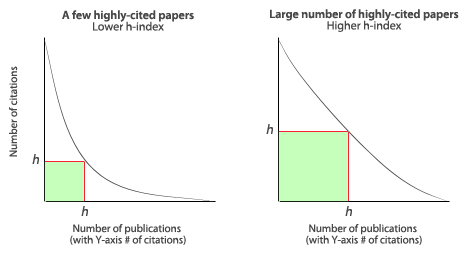Library
Research metrics
- Home
- Library
- Research toolkit
- Research metrics
Managing your research profile
Maintaining online researcher profiles can help to increase the visibility of your research output
AHRO Author profile
An AHRO author profile allows you to showcase all your research in one place. You can choose to add a biography, profile picture, your ORCiD, and links to your other research profiles or websites. Search to see if you have a profile or create your own.
ORCID
 |
An ORCID iD is a persistent digital identifier that distinguishes you from every other researcher. It can be associated with research activities such as manuscript publications and grant submissions, and can be linked to your AHRO profile, Scopus ID and other identifiers. To register or find out more, go to the ORCiD website. You can also create researcher profiles for other databases including Google Scholar and Web of Science.
Citation metrics
Citation metrics are measures that demonstrate the impact of a research paper or a researcher's body of work
Citation count
Counting the number of citations is one way to assess the impact of a single paper, an individual journal or an author's body of work.
h-index
The h-index is a measure of an author's productivity and citation impact. It represents the largest number of papers that have had at least that number of citations. For example, an author with a h-index of 12 has 12 publications that have been cited in other papers at least 12 times; for h = 35, the author has 35 publications with at least 35 citations.
h-index can be retrieved from Google Scholar, Scopus, or Web of Science. Depending on the literature that is included in the database, the same author may have a different h-index.
Field-Weighted Citation Impact (Scopus)
Field-Weighted Citation Impact (FWCI) shows how well an article is cited in comparison to similar articles. This measure considers the year of publication, the type of document (e.g. original research or review), and the discipline (some disciplines cite more than others).
FWCI > 1.00 – article is cited more than the average of similar articles
FWCI < 1.00 – article is cited less than the average of similar articles
Available in Scopus
Altmetrics
Altmetrics provide additional information about research impact beyond traditional citation metrics. An Altmetric score is a weighted count of the online attention that a research publication has received.
It can include:
- Social media (e.g. Twitter, Facebook, LinkedIn)
- News media and magazines
- Blogs
- Policy documents
- Patents
- Wikipedia entries
Qualitative information provided by Altmetrics can demonstrate real-world impact such as being cited in a guideline, patent or policy document.








